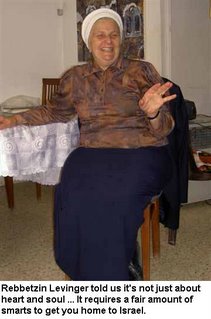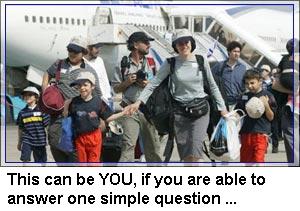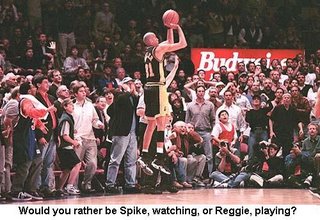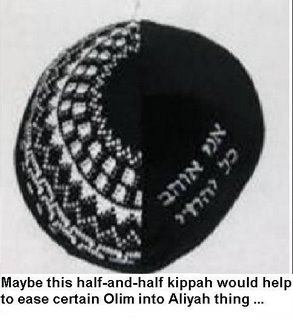
First, a quick story, and then we’ll move on to the essence of the post itself.
I had the zechut of spending this past Shabbos in Hevron. And if you ever want to spend a Shabbos in a place where the residents are serious about their religiosity, yet at the same time so friendly, Hevron is an incredible place to spend it.
We had the good fortune of being able to listen to the story of Rebbitzen Levinger, who arrived in Israel 50 years ago. As one of the original builders of the Hevron community, she has been through a tremendous amount. But at the end of her almost hour and a half talk with us, which covered topics as wide-ranging as Hevron relations between Jews and Arabs, what life was like those first few months in Hevron and her views of the current political situation, she ended with one simple thing that I want to share with you.
She said, “I’m just thankful that HaShem gave me the brains to move to Israel.”
Think about that for a second. This is a woman mainly credited with bringing us being back to Hevron at all. She’s lived in Israel for 50 years, protected her children during the ‘67 war while her husband fought, moved to Hevron to try to build it up, went up to Kiryat Arba for 5 years and then back down to Hevron, where she’s lived ever since. She’s taken a place that was without Jews since the 1929 massacre, and led it to a point today where there are nearly 100 Jewish families living there, and two Shabboses ago, 20,000 Jews were able to celebrate Shabbat Chayei Sarah freely there.
And she ends a talk with us by saying that she’s thankful HaShem gave her the
brains to move to Israel.
So either she’s the most humble person since Moshe Rabbeinu, or she’s trying to tell us something.
I think what she’s trying to tell us is that yes, those first months and years were tough in Hevron, and it’s still a challenge now, but man, it ain’t nothing compared to making Aliyah. It’s Aliyah she’s most thankful for. And she’s telling us one other thing as well. If it wasn’t for making Aliyah, she never would have been able to have the hand in history that she has had. Get here, she says, and then you will be able to have an impact. Stay there, and you will always just be watching history unfold.
Maybe Tehilla has the statistics, or maybe they don’t want to share them, but trust me when I tell you that not all people who come on a Tehilla pilot trip wind up making Aliyah. So the question we have to ask ourselves is, “Why not?”
I mean, Tehilla does a great job, right? Communities, education, employment, other important helpful hints about living here. They’ve got it all covered.
But you know what? There’s one thing they don’t cover. And it’s not because they aren’t a great organization. They are. And it’s not because they lack the necessary resources. And it’s not because they don’t understand how to help Olim.
Quite simply, there’s one thing they can’t help you with.
Why are you making Aliyah?
And I’ve got some news for you: If you are making Aliyah because you think it’s so cute how you will have kids with Israeli accents when they speak Hebrew, that’s not going to get it done. If you are making Aliyah because you think it’s so cool how everything’s in Hebrew here, and so many restaurants are kosher, that will not be good enough.
And most importantly, if you are thinking seriously about making Aliyah because, well, it’s just not working out for you in the U.S., think again, please, for your own good.
Because I love the fact that my adorable kids now speak Hebrew with Israeli accents, and, in fact, not even here two years, they already translate their thoughts into English to speak with us in the house.
But I can also tell you the story about my son Tzviki, who didn’t speak a word of Hebrew for the first nine months we lived here. We dropped him into a class with no English speakers (including the teachers), and he rejected everything, instead burying his head in any English books he could get his hands on.
But even he is now on-track, and just a couple months ago, we saw him walk down our steps with his head buried in a Hebrew story book.
And I love that, when I’m in business meetings, even secular people are still Jewish. I was in a meeting a few weeks back, I talked about it on the show, and at a certain point, someone knocked on the door. One of the people in the meeting went to answer the door and no one was there. She shrugged her shoulders and said to all of us, “Eliyahu HaNavi.” And everyone in the room knew exactly what she was talking about. And I was the only kippa-wearer in the group.
This is an incredible place.
My oldest son, Ezra, called me the day after Sukkot and said, “Baruch Mashiv Haruach u’Morid HaGeshem!” (Blessed is the One who makes the wind blow and the One who makes the rain fall!) He said this because it was raining outside …the day after we had started to pray for it. This was amazing for two reasons: First, it’s incredible that our prayers are so specifically tied to nature here. But second, I love that my kids understand that.
But no matter how incredible it is, if you are struggling to make a living – or a life – in the U.S., you will likely struggle here as well. And if you have a child who is having social problems in the States, he or she will likely have problems here as well.

And it’s not going to matter how many people attend your NBN flight arrival nor if you get a few thousand dollars from NBN, as terrific an organization as they are.
Because Israel is the world’s most intense place. Everything here is incredibly intense. You want celebrations? We do it better than anywhere else in the world. You want memorials? Unfortunately, we do that well, too. You want disagreements? Well, I have to go through a checkpoint to get to work everyday.
Intensity. So if you have problems, they will be more intense here.
I made Aliyah with no job, no family and five kids. Whatever your situation, it’s going to be a shock to your system to make Aliyah. So in our case, we needed to understand that any problems we had would be intensified upon walking down the steps of the NBN plane. And for everyone, it means that if there are marriage problems (Thank G-d, we are fine in that department.), educational problems, money problems, you name it, they will be intensified here,
And there’s only one way to overcome that intensification of your life.
As my dad used to tell me when I was learning how to hit a baseball, “Son, you gotta keep your eye on the ball.”

So what’s the ball? You have to answer that question. Tehilla won’t be able to answer it. I won’t be able to answer it. NBN won’t be able to answer it. And your rabbi won’t be able to answer it. (He may be able to help a bit.)
Your family? Well, they’re going to work very hard to try to KEEP you from answering it.
It’s totally and completely up to you. And you have to answer that question.
Now, once you do, if you really do, you’ll be in great shape.
Wanna know what mine is?
After listening to rabbi after rabbi, and reading book after book, explain to me that there are two ways for Mashiach to arrive – we can wait, in which case he’ll come when he’s good and ready, or we can demonstrate our interest in him coming, by being good Jews and living in the land HaShem gave us as a gift – I decided, this is ridiculous. Here I am, a supposedly observant Jew, and I’m not fulfilling one of the most basic commandments. I’m not living in the Land where G-d wants me to live. I gotta live there.
That’s my answer to the question. So what that means is that if any issues crop up related to school or community or job or politics or even not being able to listen to St. Joe’s basketball on the Internet because of the time difference, they can’t compete with my reason for being here.
Figure it out. Write it down. Discuss it with your family. Your immediate family and your extended family. Put it in big letters on your refrigerator.
And it doesn’t even have to be a religious reason.
Let me prove it …
Ever meet one of these Jews who tries so hard to hide his Jewishness? He gets an earring, a tattoo, eats pork rinds for lunch on Yom Kippur, only dates non-Jewish women. You know the type, right?
Well, isn’t it amazing that everyone still knows he’s Jewish?
Well, guess what? Guess where the only place is where no one will think of him as a Jew. Israel. Amazing, isn’t it? G-d is so amazing that he has provided us a homeland where you can focus on spirituality if you like and where you can be completely secular if you like.
Come to Israel, live in a secular-friendly town like Tel Aviv or Herzliya, and no one will ever think of you as a Jew.
So you can have an anti-religious reason for being here, and it still works.
So what’s yours?
I have a friend in Baltimore who once told me that he knows that he and his family will not be making Aliyah. But he said, “But we’ve decided that Aliyah is going to be a cause of stress everyday for the rest of our lives.”
But as pro-Aliyah as Baltimore is, you know how many friends I have there who made pilot trips and are still living in Baltimore?
When we first moved to Baltimore, I met someone who responded to the introduction by saying, “We’re making Aliyah in six months, so don’t even take the time to get to know us.”
Three and a half years later, he was one of the guests at our going away party, and he was still living in Baltimore.
I’m proud to say, he has since made it here.
But families have trouble making the move because they can't answer the question. It’s classic:
“I know Israel’s where I want to live. My kids will be happy there. They will be able to pick up any sefer and learn, without having to get help translating the words. But parnassa …”
Let’s go back to the beginning, to the story I told about Rebbetzin Levinger.
She said, “I’m just thankful that HaShem gave me the brains to move to Israel.”
Not the strength. Not the will. Not the means. Not the luck.
The brains.
She’s saying what I am trying to explain. Making Aliyah is not just about emotion. It’s about understanding why it makes sense to live here.
But there’s an emotional side as well, as illustrated by a story I once heard, that you may have heard as well, but since it’s so compelling, I’ll tell it.
A man is standing at the Kotel, and he notices another man crying. He goes over to the man and asks him, “Why are you crying?”
The man says, “I made Aliyah on this date one year ago. And I’m crying because I can’t believe I’ve made it this far.”
So then notices another man standing a few feet away, and he is crying too.
“Why are you crying?” he asks.
“I made Aliyah 10 years ago, and every year I come to the Kotel on this date, and now, after 10 years, I can’t believe I’ve made it this far.”
He then notices a third man. And this man is not standing. He’s sitting with his head in his hands, crying his eyes out.
“Excuse me sir,” he says, “but why are you crying?”
“20 years ago,” he said, “I had an opportunity to make Aliyah, and I passed it up. Then, 10 years ago, a company offered me a job here, and I turned it down because I thought my kids were too old. Three years ago, with all my kids out of the house, I thought maybe now’s the time. But my wife is so happy in our community. She doesn’t want to come. She asked me if it would be okay if we just pledged to visit Israel once a year. That was three years ago, and this is my first visit since we made that pledge. And I know we will never make Aliyah. That’s why I’m crying.”
My wife has an interesting story about Aliyah as well. When she was studying in Neve Yerushalayim, she wrote a letter to her parents.
She wrote that she couldn’t understand why any Jew wouldn’t want to live in Israel. She told her parents she was going to live here, even if it took 10 years to get here.
It took 11. But she got here, because her reason stayed with her.
Figure out why you are making Aliyah. And once you do, it won’t matter whether you have five kids, ten kids, no job here or a well-paying job there.

It won’t matter. Because you will have your reason, and it will keep you going. It will help you get through telling your extended family. It will help you pack. It will help you get on that plane. It will help you get settled. And it will help you two years from now, when maybe your child’s school isn’t what you had expected. Or maybe your first job didn’t turn out so great. It will help you.
And then, you, like Rebbitzen Levinger and like me, and like many others, you will be able to thank G-d for giving YOU the brains to make Aliyah.
 Rabbi Betzalel Borstein, principal of Yerushalaim Torah Academy, talks with Go'el about helping boys who struggle with learning Hebrew graduate Israeli high school. For free mp3 download of this podcast click here
Rabbi Betzalel Borstein, principal of Yerushalaim Torah Academy, talks with Go'el about helping boys who struggle with learning Hebrew graduate Israeli high school. For free mp3 download of this podcast click here
 Rabbi Betzalel Borstein, principal of Yerushalaim Torah Academy, talks with Go'el about helping boys who struggle with learning Hebrew graduate Israeli high school. For free mp3 download of this podcast click here
Rabbi Betzalel Borstein, principal of Yerushalaim Torah Academy, talks with Go'el about helping boys who struggle with learning Hebrew graduate Israeli high school. For free mp3 download of this podcast click here















